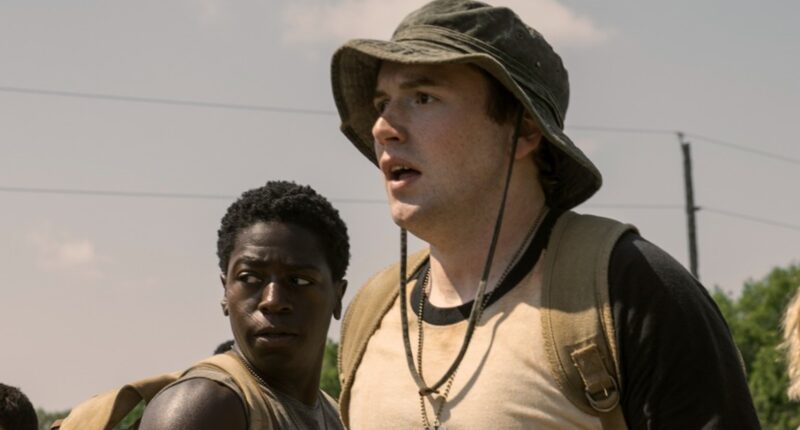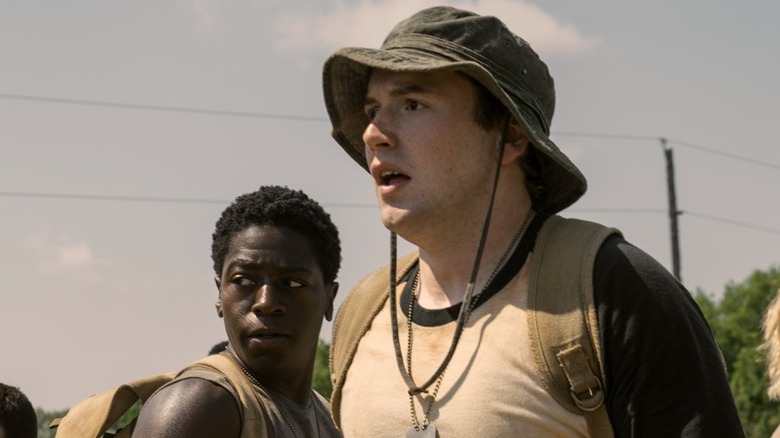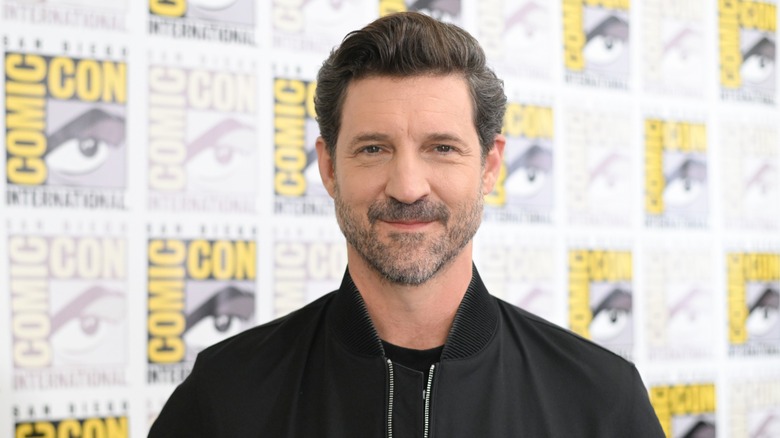Share this @internewscast.com
Stephen King’s works have often been adapted in ways that pushed boundaries. With numerous films based on his prolific writing, some adaptations understandably took a more intense approach. However, for “The Long Walk,” King imposed a strict requirement before granting his blessing for a film version: he insisted that director Francis Lawrence and writer J.T. Mollner should fully embrace the story’s brutal nature.
Initially penned during his college years and published in 1979 under his pseudonym Richard Bachman, “The Long Walk” is set in a dystopian future. It narrates a harrowing competition where young men must walk at a pace of no less than four miles per hour until just one survives. The victor receives a lavish prize, while others succumb to death, executed by the police trailing them.
Bringing “The Long Walk” to the big screen required depicting the demise of many adolescents. King was adamant that the adaptation should not shy away from its violent essence, explaining to The Times of London that superhero films often show villains causing massive destruction without any real consequences. He wanted his narrative—an allegory reflecting the Vietnam war’s toll on young men—to be portrayed uncompromisingly. Reflecting on his stance, King stated, “If you’re not going to show it, don’t bother,” resulting in a notably intense movie.
Director Francis Lawrence is no stranger to showing violence against kids
Director Francis Lawrence was comfortable with depicting the grim fate of children on screen; it’s a challenge he faced while directing the “Hunger Games” series, including “Catching Fire,” both “Mockingjay” installments, and the 2023 prequel “The Hunger Games: The Ballad of Songbirds and Snakes,” which marked his engaging return to the story’s dystopian setting.
Similar to “The Long Walk,” “The Hunger Games” explores the theme of children in dire scenarios created by an oppressive society. While working on the “Mockingjay” films, Lawrence frequently contemplated the implications of on-screen violence, sharing with Time the importance of depicting the aftermath of violence. “I don’t want to promote violence,” he explained, “but these stories emphasize the need for caution in conflicts. Even necessary revolutions come with sacrifice and consequences.”
As Lawrence embarked on directing “The Long Walk,” he advocated for an R rating to maintain the story’s authentic intensity rather than diluting its impact for a broader audience. Speaking with SFX magazine, as reported by CinemaBlend, Lawrence emphasized, “To stay true to the book, it must be violent, intense, and somber—a challenging watch.” Whether addressing themes of warfare, economic futility, or anti-violence, he asserted that the film must preserve its original fervor.
The Long Walk’s screenwriter will put another kid in danger in his next Stephen King adaptation
Like director Francis Lawrence, screenwriter J.T. Mollner has considerable experience scripting on-screen violence. He’s the writer-director behind the twisty, eye-popping 2024 thriller “Strange Darling,” a Willa Fitzgerald-starring movie you need to check out if you haven’t yet. It’s about a serial killer, a cat-and-mouse chase through the woods, and a woman who encounters a foe she might not be prepared for, and the movie doesn’t shy away from showing the brutality of gun violence.
Speaking with CinemaBlend, Mollner revealed that he signed onto “The Long Walk” in part because Stephen King and Lawrence were committed to a violent film. “[Lawrence] knew that meant it was gonna be a very hardcore, disturbing and somewhat controversial movie,” Mollner said. “And that’s the movie I was interested in writing … We didn’t really pull any punches.”
Mollner is a self-described King fan, so other King devotees will be happy to hear that Mollner’s next project is yet another King adaptation; furthermore, it’s one that will once again put a young person in mortal danger. He’ll write and direct “The Girl Who Loved Tom Gordon,” an adaptation of the 1999 King novel about a young girl lost in the woods. Lionsgate president Erin Westerman said in a statement to The Wrap, “Throughout his work, [Mollner] creates characters, and especially young characters, that are so compelling, heartbreaking and emotional that they pop off the screen.”











